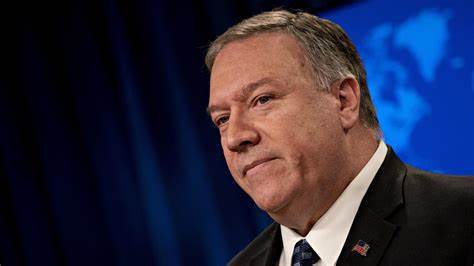by Martin Haffner Associste Editor
In a recent statement that has stirred significant discussions in geopolitical circles, former U.S. Secretary of State Mike Pompeo declared his firm belief that the United States would stand by Taiwan in the event of a military attack from China. This assertion comes amid escalating tensions between the two sides and reflects an ongoing concern regarding China’s increasingly assertive posture in the Asia-Pacific region.
Pompeo’s comments highlight a critical point of contention in U.S.-China relations, particularly concerning Taiwan, which China views as a breakaway province. The U.S. has historically maintained a position of strategic ambiguity regarding Taiwan, supporting its self-defense capabilities while stopping short of explicitly committing to military intervention in case of a conflict.
In recent years, China has ramped up its military maneuvers around Taiwan, conducting frequent air and naval exercises that many analysts interpret as rehearsals for potential invasion scenarios. These actions have prompted bipartisan support in the U.S. Congress for a more robust defense strategy in the region, with calls for increased arms sales to Taiwan and enhanced military cooperation.
Pompeo emphasized that “there’s no doubt” the U.S. would provide support, asserting that American values and interests align closely with Taiwan’s quest for autonomy and democracy. His statement underscores a broader bipartisan consensus in Washington on the necessity of countering Chinese aggression and supporting Taiwan’s sovereignty.
The 1979 Taiwan Relations Act remains a cornerstone of U.S. policy toward Taiwan. The Act commits the U.S. to provide Taiwan with the means to defend itself and stipulates that any attempt to determine Taiwan’s future by non-peaceful means would be a matter of grave concern for the United States. However, the ambiguity in the details of U.S. military support continues to be a point of debate among policymakers.
The Biden administration has indicated a willingness to bolster support for Taiwan, with Secretary of State Antony Blinken reaffirming U.S. commitments during various diplomatic engagements. Recent arms deals, along with joint military exercises involving the U.S. and Taiwanese forces, reflect an evolving strategy aimed at deterring potential aggression from Beijing.
Pompeo’s assertions also resonate within the broader context of regional security. Countries in the Asia-Pacific region, particularly Japan, South Korea, and Australia, are closely monitoring developments regarding Taiwan. Beijing’s actions are often perceived as indicative of its broader ambitions concerning regional hegemony, raising the stakes not only for Taipei but also for the entire Indo-Pacific community.
As tensions continue to simmer, Pompeo’s remarks serve as a reminder that the stakes are high, and the potential for conflict remains a serious concern. The future of Taiwan may ultimately hinge on the interpretations of U.S. commitments and responses to Chinese actions.
The situation surrounding Taiwan is complex and fraught with risks. Mike Pompeo’s confidence in U.S. support amidst Chinese threats reflects a significant shift in how the U.S. views its role in the Indo-Pacific. As both China and Taiwan navigate this intricate geopolitical landscape, the focus will remain on maintaining peace and stability while ensuring the U.S. can uphold its commitments to allies and partners in the region. The coming years will be critical in shaping the fate of Taiwan and the broader dynamics of U.S.-China relations.


